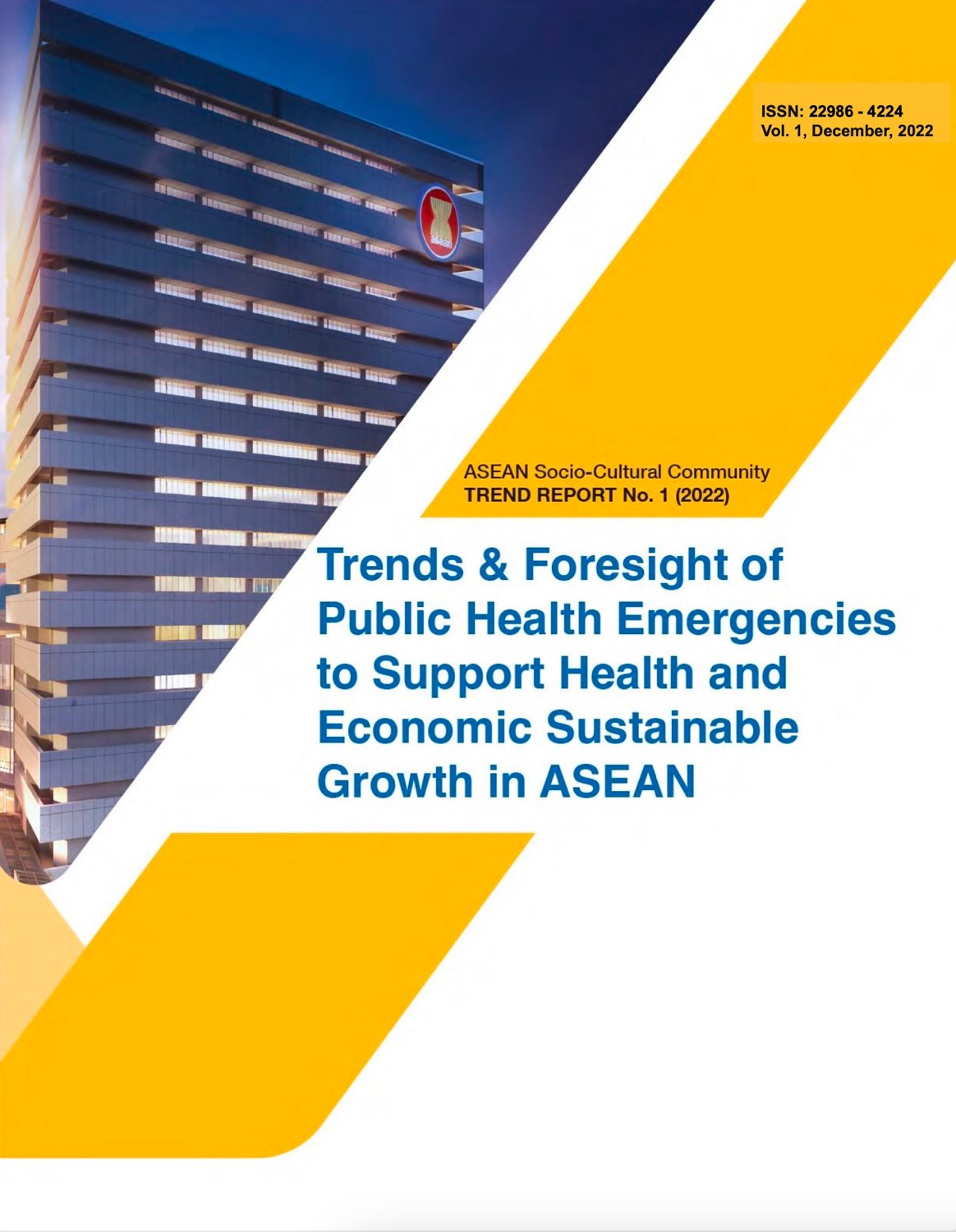

Executive Summary
The Southeast Asia region is one of the world’s highest-risk hotspots for infectious disease emergence and re-emergence, exacerbating the possibility of Public Health Emergencies of Concern – a threat to regional health security. Regional health security instability is a major concern due to its impact on sectors other than health.
Public Health Emergency interventions are critical to addressing regional health risks and must be tailored to the region’s unique risk factors and These actions may include developing smart disease surveillance or epidemic awareness at national and regional levels, strengthening Public Health Emergency preparedness, improving Public Health Emergency infrastructure and health worker capacity, ensuring collaborative and intersectoral action, implementing social protection related to health emergencies, and enhancing digital transformation of health ASEAN and its Member States can take various actions to strengthen regional health security. These recommendations include investing in various surveillance systems to improve smart surveillance, aligning Public Health Emergency initiatives to minimise redundancy, maintaining and strengthening commitment to Public Health Emergency management, and optimising Big Data and information-sharing systems at regional and national
Introduction
Background, Objectives, Methodology, and Limitations
This report aims to review the trends and foresight of PHE through the presentation of the aims and progress of the ASEAN Member States (AMS) to support the health and sustainable economic growth of the region. The report will identify challenges and opportunities, both prevailing and emerging, that the AMS should overcome, explore, and capitalize on and provide an overview of regional progress vis-a-vis the ideals above.
This report was written using various methodologies: content analysis, comparative or gap analysis, and descriptive analysis for quantitative data. Each methodology was used to compare and analyze secondary data to give a perspective on phenomena in ASEAN and its Member States.
We acknowledge several limitations in writing this Trend Report, such as unequal capacity and availability, with some data being available in several, but not all AMS, with some being outdated or incomplete. Therefore, this report’s internal validity should be interpreted accordingly.
The Resilience Development Initiative team comprises Bony Wiem Lestari, MD, MSc; Fadilah Fitri Arsy, SKM; Annisaa Indrarini, ST, MSc; Fachriey Mungkasa, SIP; and Delaneira Humaira, SPWK. Aly Diana, MD, PhD, is from the Department of Public Health, Faculty of Medicine, Universitas Padjadjaran, Bandung, Indonesia.







